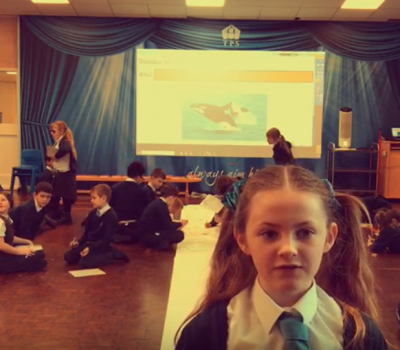

How do you inspire children to have a love for reading? How can you introduce new texts?
In his first blog for Nexus Education, Richard Simpson argues that it has to begin with ourselves

Lockdown provided me with a great opportunity to do more of what I loved –read! Not as much as I’d hoped, I’ll grant you, given two young children who needed home-schooling, and remote learning to set up and deliver to my class, but some, definitely. I even set up a book-review blog (www.whatiread.co.uk if you want to have a look) and started a Twitter account with the purpose of connecting with like-minded book-loving teachers (@richreadalot if you fancy joining in!)
So I set myself a target…read new books, read different books, and read books by authors whose work I hadn’t read, seen, or used before in class. And what a result I’ve had! Not just in my own reading for pleasure, but since returning to school in the enjoyment I’ve seen the pupils have when they have read or listened to these ‘new’ tales, and done work that has led from them.
There’s an age-old problem at play here. Teachers need results (I’d hoped we were moving away from all that, but sadly it doesn’t seem to look like it…). To get results we need to be secure and clever in our use of texts to maximise what we ‘get from them’ in the classroom. And that’s fine – plenty of teachers use great books to engage children in learning and inspire writing and discussion. But then we get stuck…we go back to the same old stories again and again (and I’m not knocking this, just cautioning – there is a place for classics and great texts to be revisited, without doubt!).
We often don’t feel we have time to read new books, plan work based on them, cross—reference with curriculum documents and consider their place and value in the long term scheme of things, so we use the same book that worked last year, and the year before! Often, these books seem to be by the same authors too, thus narrowing the range that a child is exposed to as they journey through school. We, as English leads, need to make sure this is challenged and doesn’t happen if possible.
It takes time, yes – time to read, time to think, time to plan and see where it will take you and what you can do, but it’s worth it, both from a pupil and a teacher point of view. I’d encourage all teachers to constantly be reading and keeping abreast of new books and new authors and themes, and looking at where they might fit in to what you’ve already got. You don’t need to reinvent the wheel – many of the activities that you use for one book can be used for another. Many of the books may fit alongside a particular topic and have cross-curricular links.
My advice for making the most of new books, and getting them into your classroom is this:
Some of these might be new, some might already be in place in your school, and some may be controversial, but… if we don’t want children to read the same authors or titles all the time, we need to model that in our use of texts too. Challenge yourself and thus your pupils with new books they wouldn’t choose themselves – new authors (don’t even start me on the DW argument…), themes to make them think (more important than ever that views and attitudes are broadened…), and genres (ever read a book completely written in verse before? Try Joseph Coelho’s new Zombierella series out..!).
It keeps things fresh, up to date and inspires the readers in our care, and that’s what we’re all here for, after all, isn’t it??
The summer holidays are now upon us, so make the most of them –enjoy reading a new book, and not only is it a great way to unwind and spend your time off…you may just find yourself inspired to use it and full of new ideas ready for next year too!